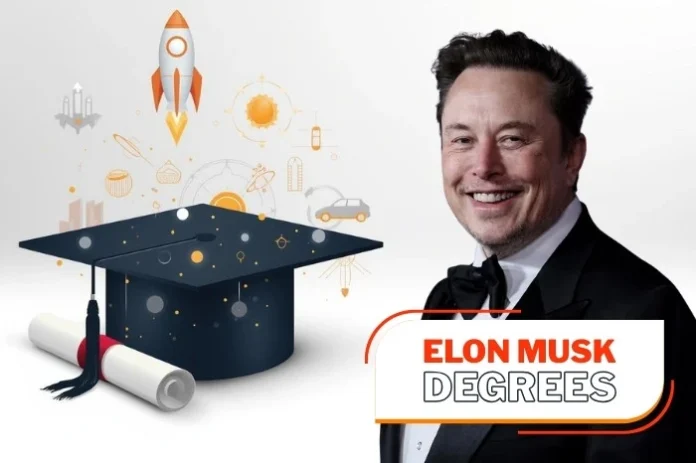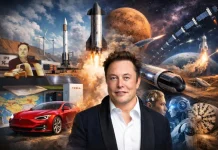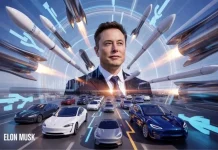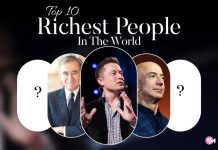Elon Musk was a desperate student moving across continents long before he could build rockets or led Tesla. Although his education could sometimes take a backseat to his fortune and headline-making businesses, it formed the basis of the man who is currently the most famous and number one on the list of the richest man in the world.
Musk attended the University of Pennsylvania and completed two bachelor’s degrees, Physics and Economics, but his college life was not an easy one. He started in South Africa, stopped in Canada, moved to a campus of an Ivy League, and even abandoned a Ph.D. in Stanford after only two days. On his journey, he financed himself by throwing house parties to cover rent and working in Silicon Valley as an intern, all aimed at positioning himself at the core of the internet revolution.
Musk Early Education (Primary Education)
Musk was brought up in Pretoria and attended three schools including Waterkloif House Preparatory School, Bryanston High School and Pretoria Boys High School where he attended and graduated. As a teenager, he was already surrounded with computers and before he left South Africa, he briefly attended the University of Pretoria whilst arrangements to move to another country were being finalized.
Why the early exit? By using the nationality of his Canadian-born mother, he was able to avoid the apartheid-era conscription, and create an opening to North America to act as a stepping stone to the United States.
At-a-Glance: Elon Musk’s Schools and Dates
| Level | Institution | Years | Notes |
|---|---|---|---|
| Primary | Waterkloof House Preparatory School | — | Pretoria, South Africa. |
| Secondary | Bryanston High School | — | Johannesburg area. |
| Secondary | Pretoria Boys High School | 1989 | Graduated. |
| University (SA) | University of Pretoria | 1989 (≈5 months) | Attended while immigration paperwork processed. |
| University (Canada) | Queen’s University, Kingston, Ontario | 1990–1992 | Transferred after two years. |
| University (USA) | University of Pennsylvania | 1992–1995 (studied) / 1997 (awarded) | BA in Physics; BS in Economics (Wharton). Degrees awarded May 19, 1997. |
| Graduate (USA) | Stanford University | 1995 (a few days) | Admitted to Materials Science/Applied Physics; left to found Zip2. |
Elon Musk Degrees: The U.S. Chapter
Musk came to Canada in 1989 but in 1992, he transferred to the University of Pennsylvania and moved to the U.S. There he took a two-course load, physics in the College of Arts and Sciences and economics at Wharton. In spite of the fact that he graduated in 1995, his degrees were awarded by the university in 1997 (a fact that confuses many chronologies).
Summers he spent near the action. He worked at Pinnacle Research Institute (energy storage) by day and Rocket Science Games by night in 1994, a first experience of the Silicon Valley rhythmic.
Later, in 1995, he went to California, joined the Ph.D. program in materials science at Stanford, and dropped out almost at once. His reasoning was simple: either do a Ph.D. and see what the internet will do, or get in and contribute to its creation.
During his very early journey of innovation, he co-founded Zip2. What started at a few thousand dollars ($2,000 from Elon, $5,000 from Kimbal, $8,000 from Kouri, plus seed funding from angel investors) was sold for roughly $307 million. This sale increased Musk’s personal wealth by $22 million.
Since then he started to make more money every second than most high-profile businesspersons in America. a momentum that continued for decades and ultimately helped him reach one of the most remarkable wealth milestones in modern history. Aside, for his support for freedom of speech, he was nominated for Nobel Peace prize.
What, Exactly, Are Elon Musk’s Degrees?
Sometimes there is confusion with labels and dates. The record is clear:
- Bachelor of Science in Physics (College of Arts & Sciences)
- Bachelor of Arts in Economics (Wharton)
Both degrees were conferred May 19, 1997, although he had completed coursework at an earlier date.
Elon Musk Education in the USA: Why He Moved- and What He Did with it.
Musk emigrated to Canada to avoid mandatory military service in South Africa under apartheid, and to simplify immigration to the U.S. He spent two years at Queen’s University, then moved to Penn to take advantage of the best programs, the most powerful entrepreneurship circles and the best access to the business and finance hubs in America.
The path to Silicon Valley was brief: Penn to internships in energy storage and game production, to California to a Stanford offer to the internet boom. That choice, skip the Ph.D., develop a company, established the pattern of the next one.
Musk’s View on College Degrees (In His Own Words)
Musk has been consistent—formal credentials matter far less to him than demonstrated ability.
“A PhD is definitely not required. I don’t care if you even graduated high school.” — Musk on Twitter, while recruiting for Tesla’s AI team (Feb. 2020).
“College is basically for fun and to prove that you can do your chores, but they’re not for learning.” — remarks at the Satellite 2020 conference.
Those comments have been recapped in the business press with the hiring bar that he emphasizes: demonstrate extraordinary capacity.
He even makes X (formerly Twitter) his virtual square, sometimes amusing, sometimes provocative, and that is also worth remembering when you read viral one-liners about education. (Case in point: his occasional display-name stunts, like the much-memed “Kekius Maximus” switch on X.)
Bottom Line
Elon Musk majors, a B.S. in Physics and B.A. in Economics, had no hallmark on his career, but obviously made it sharper. Physics taught him to think first principles; economics taught him about markets and incentives. The rest were through immersion: internships, an abrupt exit from Stanford, and a bias toward building. That mixture, formal study and unrelenting, hands-on learning, makes a lot of sense in understanding the way he moves, and how he became one of the leading self-made young billionaires.
FAQs
Musk studied physics and economics at university, but he does not hold a formal engineering degree or a Ph.D. He’s better described as a technologist and entrepreneur with strong scientific curiosity. As he put it in a TIME interview, when asked how he sees himself, he replied:
“I think of myself as a technologist or an engineer.”
While not officially trained as an engineer, his hands-on involvement in designing rockets, batteries, and vehicles has given him a reputation as a technical innovator—even though he’s not strictly a “scientist” in academic terms
Back in 1995, Stanford let Musk into their Materials Science and Applied Physics grad program. But, he left out after just two days to chase his business dreams instead.
Nobody really knows Musk’s actual IQ score since it’s never been shared publicly. Some folks online throw around guesses like 155 to 160, thinking it makes sense because of his smarts and school history. Those are just wild guesses, though, with no real proof. On the flip side, his biographer says it might be closer to 100 or 110, but that’s just talk too—no hard evidence there either.
Yes, he sure did! Yale gave Musk an Honorary Doctorate in Engineering and Technology in 2015. Plus, he’s received titles like Honorary Membership from IEEE and was elected as a Fellow of the Royal Society (FRS), along with other fancy awards.





